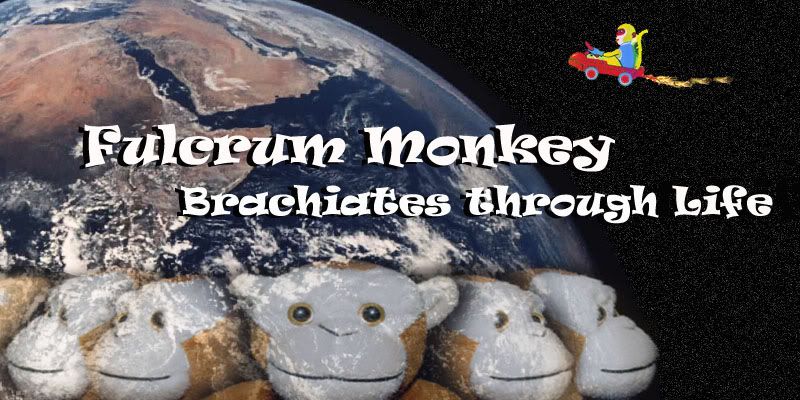My sister Sandy at Thanksgiving dinner, “You look relaxed. I haven’t seen you look this good, this much like yourself, in years.”
Karl attempts to get the old mental jalopy out of first gear through language and personality games couched in playful verbosity but with “serious” aims:
I was in the mood for a movement movie so I rented Blade II: a film to which I had dragged many friends when it came out, all of whom were overwhelmed by the gore and the ridiculousness of the hyper-evolved, Predator-mouthed vampires. I still liked it. However, sitting here at my desk while the film plays downstairs unwatched, I am drawn away from Blade and into Roland Barthes “A Lover’s Discourse: Fragments” – such is my life, a panoply of high and low culture.
I have taken such pause as was needed to decompress from my former life as an administrator adnauseum, and now that I am less nauseous from the noxious interpersonals that have been left behind, I find that my brain is once again beginning to cycle of its own accord. (I am now writing in the style of Barthes, or more to the point in the performed style that Barthes’ translator into English, Richard Howard, adopted to covey Barthes ability/desire to cut against the dominant historical voice of linguistic semantics.)
Excerpted from the foreword to “A Lover’s Discourse”
“The necessity for this book is to be found in the following consideration: that the lover’s discourse is today of an extreme solitude. This discourse is spoken, perhaps by thousands of subjects (who knows?), but warranted by no one; it is completely forsaken by the surrounding languages: ignored, disparaged, or derided by them, severed not only from authority but also from the mechanisms of authority (sciences, techniques, arts). Once a discourse is thus driven by its own momentum into the backwater of the “unreal,” exiled from all gregarity, it has no recourse but to become the site, however exiguous, of an affirmation. That affirmation is, in short the subject of the book which begins here…”
Barthes is engaging in a “structural” (not to be confused with structuralism) analysis of the performance of the lover speaking. Or rather, it is the analysis of the lover being spoken. The very marginalized nature of the discourse warrants attention to it as that which has been coded as unreal by the dominant discourse has David potential for cultural Goliaths of the Great and Powerful Oz variety.
One more time and in English please – Do you find yourself in the midst of passion for an other – either someone there or someone that you pine for – caught in the repetition of romantic cliché? As though a script had been handed to you and you, rather than performing it, are performed by it. As in all love songs and poetry that you might identify with.
Example: I once heard myself say, “You make me want to be a better man.” And after I said it I thought, “Where the fuck did that come from? Did I say that or did the cliché narrative say that through me?” I was playing out the twenty-something redemptive model of saving the bad boy from himself. Simply saying my part, however sincerely or seductively it might have been intended it was still a line on cue in a discourse that pre and post dates “me”.
So – if the overarching theme of this blog of late has become a quest for vocation then the pediment of that quest must of course be identity and yet we know that much of identity is performance and that the most fundamental character of all being is in the ability of being to transform itself (do we know that?). We there find the relevance of exploring the lover’s discourse with Roland because it is in the language of the lover that the apparently fulfilled worker speaks of their profession, as though it were “the one”, the proverbial best game in town. And of course it isn’t until I find the “me” that I want to be that I will be able to see a lover in another.
Weedy at the end of the bar in my second to last vision quest (he was drunk on Rum & Coke), “You don’t know who you are yet, you’ve just been drifting through life. Until you figure out who you are, you aren’t going to be able to make a relationship work.”
The fulcrum monkey needs a fixed point from which to move his world.




0 Comments:
Post a Comment
<< Home